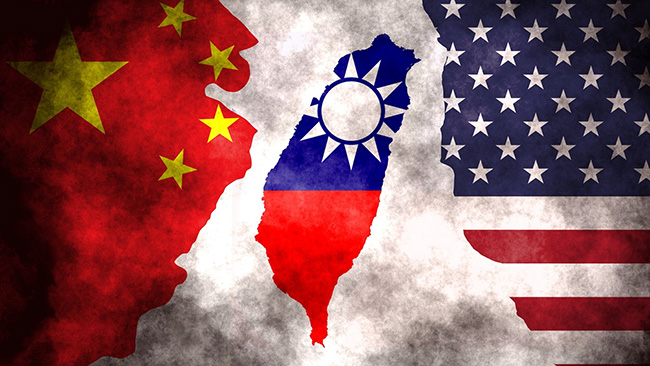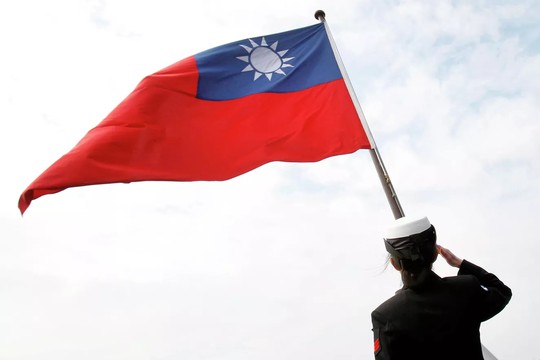Chinease Foreign Ministry spokesperson’s remarks on the election in Taiwan
Q: What’s your comment on the result of the election in the Taiwan region?
A: The spokesperson of the Taiwan Affairs Office of the State Council has commented on the result of the election in China’s Taiwan region.
The Taiwan question is China’s internal affair. Whatever changes take place in Taiwan, the basic fact that there is only one China in the world and Taiwan is part of China will not change; the Chinese government’s position of upholding the one-China principle and opposing “Taiwan independence” separatism, “two Chinas” and “one China, one Taiwan” will not change; and the international community’s prevailing consensus on upholding the one-China principle and long-standing and overwhelming adherence to this principle will not change. The one-China principle is the solid anchor for peace and stability in the Taiwan Strait. We believe that the international community will continue to adhere to the one-China principle, and understand and support the Chinese people’s just cause of opposing “Taiwan independence” separatist activities and striving to achieve national reunification.
 Taiwan is at the epicenter of interests of China and the United States.
Taiwan is at the epicenter of interests of China and the United States.
M.K. Bhadrakumar, Indian Ambassador and prominent international observer, notes: Taiwan’s electoral laws provide for the candidate with the highest number of votes becoming the winner on a first-past-the-post basis, and it is a moot point that the incumbent Vice President William Lai from the Democratic Progressive Party (DPP) who secured only 40 percent of votes is still elected as the next president. The DPP suffered a setback in the legislative election too, losing its majority in the 113-seat legislature and falling behind the Nationalist Party (KMT).
Chinese President Xi Jinping has made ‘national rejuvenation’ a goal for Beijing to reach by mid-century — and, bringing Taiwan under its control and reunifying China is part of that rejuvenation vision. In his New Year address, Xi Jinping insisted that the “reunification of the motherland is a historical inevitability.”
On the other hand, Lai and the DPP see Taiwan as an independent country, whereas, the two main opposition parties who between them garnered 60% of votes in Sunday’s poll do no subscribe to such a stance. The Beijing-friendly Kuomintang (KMT) opposes Taiwan independence and advocates ‘pragmatic dialogue’ while the other rival, the Taiwan People’s Party, proposes engaging with Beijing and maintaining peace.
Unsurprisingly, Beijing is extremely critical of Lai who once described himself as a “pragmatic worker for Taiwan independence” and whose vice presidential candidate also happens to be a famous figure in the Beltway, having served as Taiwan’s de facto ambassador to the US.
The crux of the matter is that the Taiwan question cuts to the heart of a broader geopolitical rivalry between the US and China. Put differently, how Beijing is going to interpret the ascendance of a third successive government in Taipei led by the pro-independence DPP will be crucial. Will Beijing feel the need to up the stakes? That is a big question.
To be sure, Sunday’s vote will not only decide Taiwan’s policy with Beijing for years to come, but also geopolitics in the Asia-Pacific region and US-China relations. Military tensions are already on the rise. Under Lai, who takes over as president in May, Washington will no doubt continue to regard Taiwan as a ‘like-minded partner’. That, in turn, will complicate the fragile US-China relationship.
And any surge in the US-China rivalry can only increase the strategic value of Taiwan for Washington, which will in any case continue to play the Taiwan card against Beijing, as it has been a low-cost, high-return game for the Americans to play — so far at least.
By internationalising the Taiwan issue, which is essentially China’s internal problem, and by drumming up a propaganda campaign against Beijing’s so-called assertiveness in the region and beyond, the US has thrown down the gauntlet at China’s diplomats who are quickly damned as ‘wolf warriors’ if they react robustly.
The bottom line is, Washington realises that it is unrealistic and difficult for the US alone to respond to China’s material national power and needs to mobilise the assets of its allies and like-minded partners to strengthen ‘collective deterrence.’
In fact, the European Union foreign policy chief Josep Borrell last year called on European navies to patrol the Taiwan Strait to “show Europe’s commitment” to the region.
However, interestingly, the countries of the Global South — the so-called ‘global majority’ — have remained unmoved and are unwilling to risk their China relations over Taiwan and are not in the least interested in taking sides in the US-China rivalry.
Beijing knows that it is in a strong position vis-a-vis Taipei and that Lai has very few options and very little room for manoeuvring. Arguably, Beijing’s real challenge lies in showing its grave displeasure without going to war. It may require that Beijing expands its playbook without pushing regional allies further into the US camp.
Indeed, in geo-strategic terms, the US sees Taiwan as a crucial link in the so-called first island chain that runs from Borneo to the Philippines, Japan and South Korea, where the American bases would curtail the deployment of Chinese presence in the western Pacific.
But such a cold-war era containment strategy is dated, on the one hand, with the advent of new transport planes, strategic bombers, aircraft carriers and hypersonic missiles that have a multiplier effect on the Chinese military capabilities, while, on the other hand, the AI-driven military technology and machine learning may create lasting change across the national security enterprise.
Significantly, the surcharged Taiwanese elections did not discourage the US and Chinese defence officials from holding their ‘policy coordination talks’ at the Pentagon last week — the first such in-person meetings since before the coronavirus pandemic.
In a statement in Beijing, the Chinese defence spokesperson said that Beijing “expects the US side to develop a right perception of China, respect the core interests and major concerns of the Chinese side, and take concrete actions to work with China in the same direction to follow through the important consensus reached by the two heads of state in San Francisco.”
read more in our Telegram-channel https://t.me/The_International_Affairs

 12:05 17.01.2024 •
12:05 17.01.2024 •























